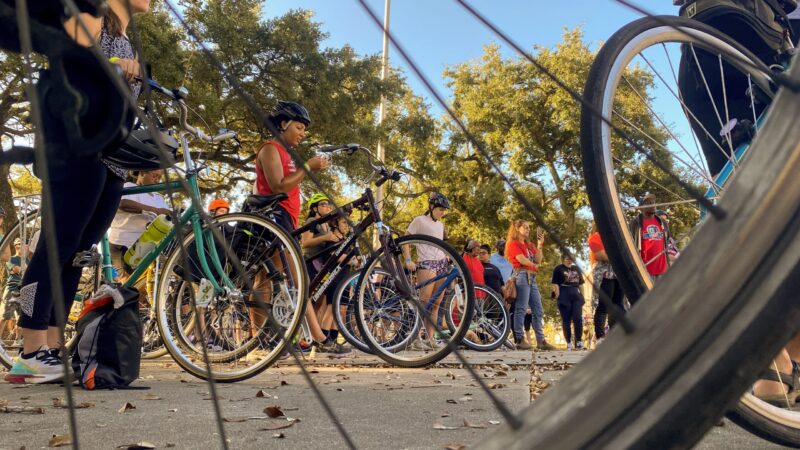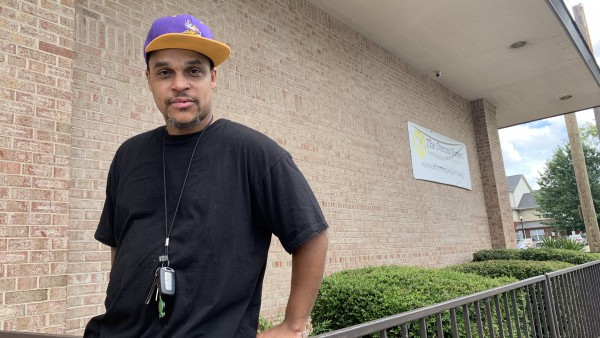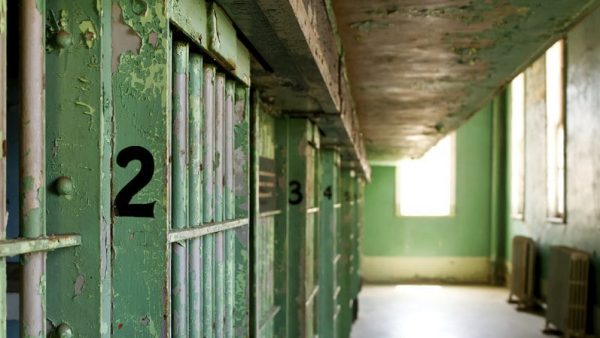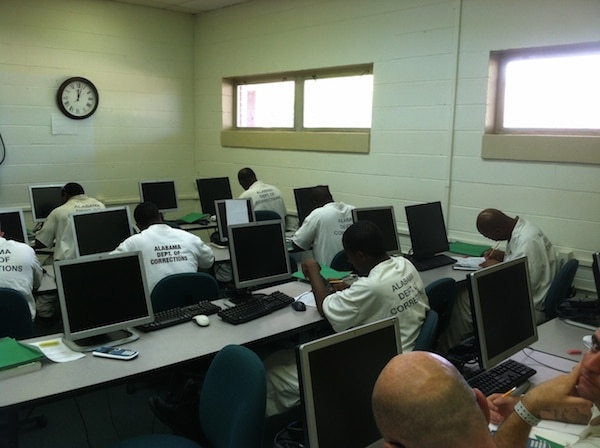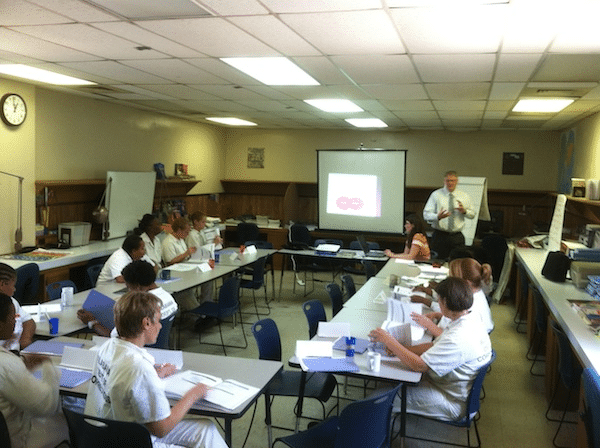Recidivism
Alabama wants to lower recidivism rates by 2030. What are the obstacles?
Last year, Alabama set an ambitious goal for itself: lower recidivism by 25% and increase post-incarceration employment rates by 50% by 2030. But a recent study on the state's criminal justice re-entry programming shows that many formerly incarcerated people are falling through the cracks.
In New Orleans, a symbolic bike ride helps fight recidivism. Here’s how it impacted the riders.
The annual NOLA to Angola bike ride returned this month to help the nonprofit The First 72+ fight recidivism. Participants share what the ride means to them.
Prison Re-Entry Program to Expand with $6 Million Grant
When prisoners are released, they often face lots of hurdles. They can't find work or housing or health care. Often, they end up back in prison. The Dannon Project recently received a large federal grant that will allow the nonprofit to help more former inmates get on their feet.
Reducing Recidivism in Alabama, U.S.
People who have spent time in prison for non-violent felony offenses have a difficult time finding - and in some cases - keeping a job. This lack of opportunity can often force people into situations where the only option is to break the law and risk being sent back to prison. It's called recidivism.
INTERVIEW: Inmate And Horticulture Student Timothy Brown
Alabama's J.F. Ingram State may be the nation's only state-run two-year college exclusively for inmates. Its mission is to reduce recidivism by offering "three legs of the stool": academics, life skills, and vocational training. WBHM's Dan Carsen recently visited Ingram's Deatsville campus, where he met Timothy Brown, a 53-year-old convicted robber and burglar serving a life sentence but hoping for parole. Brown had walked over from the Frank Lee minimum-security facility next door. He'd been passing around organic cantaloupe and filling in for his horticulture teacher. Dan starts the interview by asking Brown if doing the latter makes him nervous.
Life After Prison: Interview With Robin, Student And Tutwiler Inmate
All this week, WBHM explores challenges people face after being released from Alabama's prisons. One barrier is a lack of skills. But some educators are working to smooth that transition even before the inmates get out: J.F. Ingram State Technical College has a new program at Tutwiler Prison that teaches vocations and life skills, including getting along with others, with the goal of reducing recidivism. WBHM's Dan Carsen sat in on those classes then spoke with a student -- an inmate named Robin. We agreed not to use last names, but Dan asked her about her plans once she's out ... and about why she's in.
DOCUMENTARY: Voices From Tutwiler Prison For Women
J.F. Ingram Technical College is a unique part of Alabama's two-year college system because all of its students are incarcerated. Last month, WBHM's Dan Carsen went to Ingram's campus at Tutwiler Prison. He was planning to do a story on Ingram's new life skills program there, but sometimes, plans change. He decided the best way to convey those classes was basically to let the tape roll ... which also gives normally voiceless people a chance to be heard. You can hear them right now. Or click on the link above to hear them and see more photos.


